Cheat Sheet: National Commission for SCs | Indian Polity for UPSC CSE PDF Download
Introduction
This chapter explains the National Commission for Scheduled Castes (NCSC), a constitutional body established under Article 338 to protect and promote the welfare of Scheduled Castes (SCs). It covers the NCSC’s evolution, composition, functions, powers, and reporting mechanisms, highlighting its role in ensuring the effective implementation of constitutional safeguards for SCs.
Evolution of the National Commission for Scheduled Castes
The NCSC evolved from a single Special Officer to a dedicated constitutional body, reflecting India’s commitment to addressing SC welfare through structured institutional mechanisms.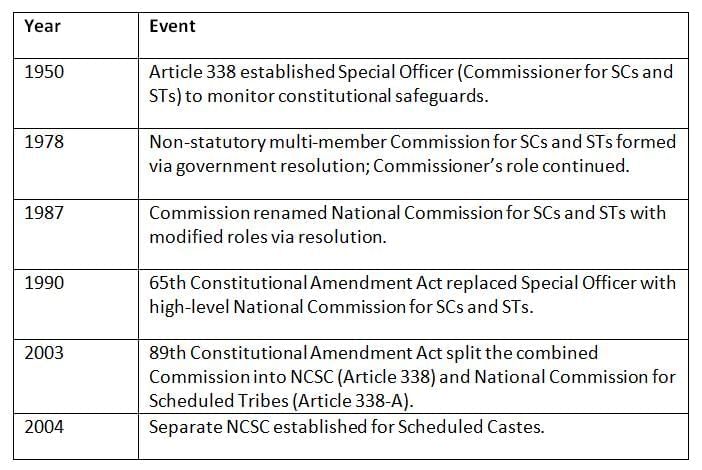
Key Points: The NCSC’s journey from a single officer to a dedicated body reflects increasing focus on SC-specific protections, formalized through constitutional amendments.
Composition of the National Commission for Scheduled Castes
The NCSC is a multi-member body appointed by the President, designed to ensure effective oversight of SC welfare with defined terms.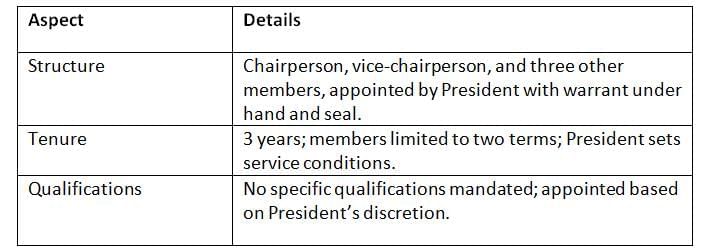
Key Points: The NCSC’s composition, with a fixed term and reappointment limit, ensures dedicated leadership for SC welfare under presidential authority.
Functions of the National Commission for Scheduled Castes
The NCSC monitors and promotes SC welfare by investigating safeguards, advising on development, and recommending actions to enhance protections.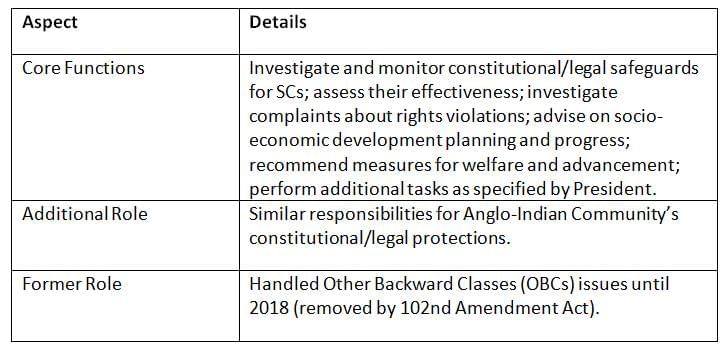
Key Points: The NCSC’s functions focus on safeguarding SC rights, promoting development, and advising on policies, with a historical role for OBCs until 2018.
Powers of the National Commission for Scheduled Castes
The NCSC has civil court-like powers to effectively investigate issues, ensuring robust enforcement of SC protections.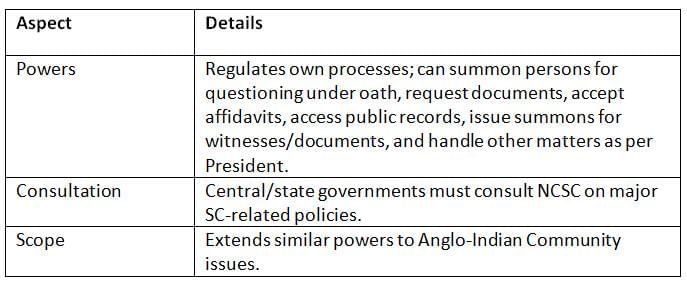
Key Points: The NCSC’s civil court powers and mandatory consultation ensure strong authority to protect SC rights and influence policy.
Reporting Mechanism
The NCSC submits reports to the President, which are presented to Parliament and state legislatures, ensuring transparency and accountability.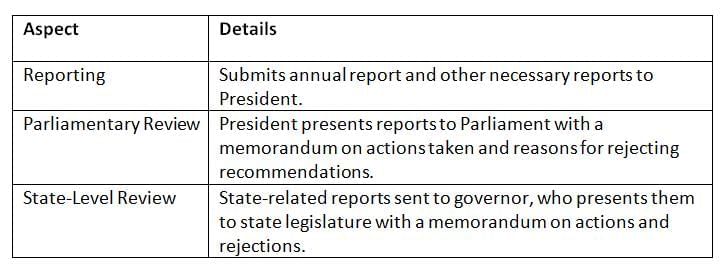
Key Points: The NCSC’s reporting ensures its recommendations are reviewed at both central and state levels, promoting accountability in SC welfare.
Chronology for Quick Revision
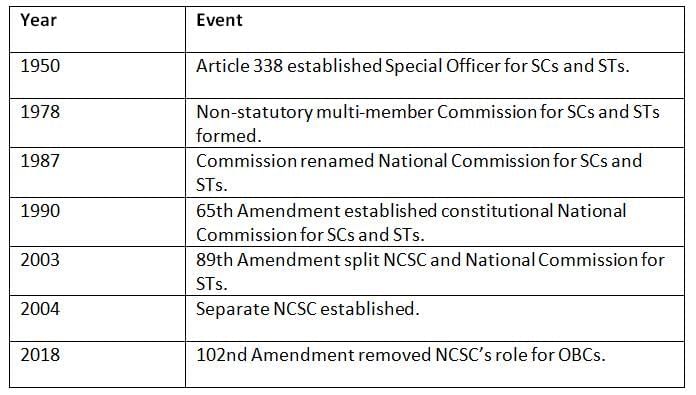
Conclusion
This chapter highlights the National Commission for Scheduled Castes as a vital constitutional body under Article 338, dedicated to protecting and promoting the welfare of Scheduled Castes. Evolving from a single Special Officer to a robust multi-member commission, the NCSC monitors safeguards, investigates complaints, and advises on development. With civil court-like powers and mandatory consultation, it ensures effective enforcement of SC rights. Its reporting mechanism fosters transparency, though its scope was reduced for OBCs in 2018. The NCSC remains essential for advancing SC welfare and strengthening India’s commitment to social justice.
|
142 videos|779 docs|202 tests
|
FAQs on Cheat Sheet: National Commission for SCs - Indian Polity for UPSC CSE
| 1. What is the significance of the National Commission for Scheduled Castes in India? |  |
| 2. How is the composition of the National Commission for Scheduled Castes structured? |  |
| 3. What are the main functions of the National Commission for Scheduled Castes? |  |
| 4. What powers does the National Commission for Scheduled Castes hold? |  |
| 5. How does the reporting mechanism of the National Commission for Scheduled Castes function? |  |
















